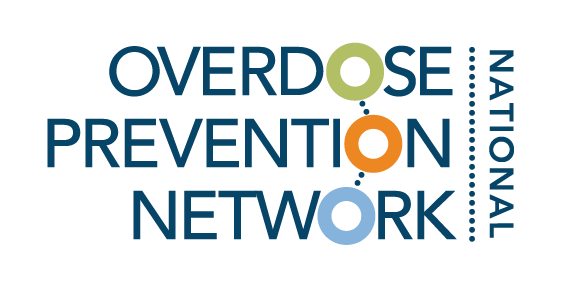
Resource Library
Toolkits, guides, and other resources vetted by experts in overdose prevention.
Filter by category and tags, or search by keyword (ex. COVID-19, harm reduction).
Local EMS Lead the Country with Opioid Treatment Model
This webpage overviews the Contra Costa County Emergency Medical Services (EMS) Pilot Project. It is the first in the country to launch a pilot project for paramedics to provide medication for addiction treatment (MAT) directly to patients in withdrawal from opioid use disorder. Lead by Dr. Gene Hern, the EMS Project Director of the CA Bridge program at the Public Health Institute, Dr. David Goldstein, of the Contra Costa County Emergency Medical Services Agency, and Dr. Ori Tzvieli, the Medical Director of Contra Costa County Public Health, the project has started serving patients in the region.
Evidence-Based Strategies for Preventing Opioid Overdose: What’s Working in the United States
This document is to assist community leaders, local and regional organizers, non-profit groups, law enforcement, public health, and members of the public in understanding and navigating effective strategies to prevent opioid overdose in their communities.
Wound Care & Medical Triage for People Who Use Drugs and the Programs That Serve Them
This comprehensive guide provides information and recommendations regarding general health, safer use practices, common viral, fungal, parasitic, and other injection-related infections, overdose and overamp, tapering, withdrawal, medications for opioid use disorder, and seeking medical care.
Key Considerations for Applying an Equity Lens to Collaborative Practice
This brief helps collaborative teams formally assess existing policies to determine whether, and to what extent, they contribute to disproportionate and disparate outcomes for the families being served.
Substance Use Management Consultation
This website provides clinically supported advice on substance use management for healthcare providers
Clinical Provider Quick Tips Addressing Substance Use in Primary Care Settings
"This Toolkit consists of a series of ""quick clinical tips""- bringing state-of-the-art resources and practical tools to busy clinicians addressing patient stimulant and fentanyl use in primary care
settings."
High-Dose Buprenorphine Initiation in the Emergency Department Among Patients Using Fentanyl and Other Opioids
This research letter analyzes a cohort study comparing buprenorphine treatment initiation, response, and follow-up treatment engagement between patients who did and did not report fentanyl use at CA Bridge EDs (CA Bridge is an implementation facilitation program for opioid use disorder (OUD) treatment in California emergency departments (EDs)).
Gold Standard Podcast with Dr. Sue
National Harm Reduction Coalition’s Medical Director Dr. Kim Sue joins various guests from programs across the country to highlight the importance of low-barrier access to medications for opioid use.
Pregnancy and Substance Use: A Harm Reduction Toolkit
This toolkit was created for supporting pregnant and parenting people who use drugs, their loved ones, and their service providers. This toolkit was written in collaboration with the National Hard Reduction Coalition and the Academy of Perinatal Harm Reduction.
A Game Changer for Street Medicine: Key Takeaways from New Medi-Cal Guidelines
This issue brief lays out the major implications of this new guidance, along with key issues that remain, and is designed for clinical professionals and others who operate street medicine programs or are interested in creating new programs.
MAT Treatment for Pregnant Women Flyers
This flyer is an example of a resource created by Sacramento County Opioid Coalition and is available in both English and Spanish. This resource is made available for use in clinics and offices.
The 2022 National Healthcare Quality and Disparities Report: We Still Have Much Work to Do
How is the US really doing on health care? Knowing the current trends is key to our work, and this annual report from the Agency for Healthcare Research and Quality (AHRQ) is the essential guide.
Traditional Practices & Native Substance Use Healing (August 2022)
Tribal MAT ECHO training from August of 2022 that discusses the benefits of linking Native traditional practices with substance use recovery.
Expanding Access To Medications For Opioid Use Disorder Treatment For Justice-Involved Populations Under Community Supervision: Best Practices From Four States
In July 2021, four states discovered a variety of policy and programmatic approaches to improve the medications for opioid use disorder (MOUD) landscape. The four states were able to pilot interagency collaborations, launch training and education curricula and explore innovative solutions around screening, treatments and case management.
Strategies to Lower Opioid Demand
Dr. Willis discusses what strategies to use to lower the opioid supply and to safely manage chronic pain. He also addresses the steps of recovery for those who are experiencing opioid use disorder.
Are Primary Care Providers a Good Fit for Treating Substance Abuse Disorders?
This video explains the importance of primary care in treating substance use disorder, and how providers can work to decrease the stigma around treatment services.
Recovery Month Toolkit 2022
This year, to address the nation’s mental health and overdose crisis, SAMHSA is launching initiatives that increase access to prevention, harm reduction, treatment and recovery services and supports, celebrate the strong and proud recovery community, and applaud the dedication of service providers and community members across the nation who make recovery possible.
Bob’s Story
This is the story of Bob and his experience with overcoming substance use disorder.
Addiction Medicine Toolkit
This toolkit from the CDC is designed to provide an introductory overview of addiction medicine for clinicians and provide strategies that can be implemented in your practice.
ASAM Weekly
The American Society of Addiction Medicine (ASAM) created ASAM Weekly which is a source of timely, useful news briefings of top stories from the field of addiction medicine.











